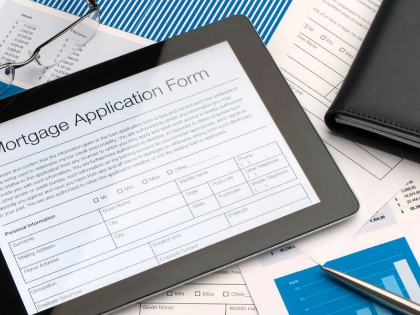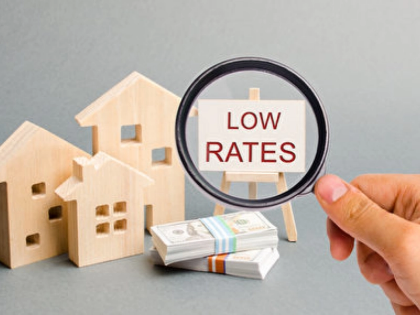Market movements and economic factors have an impact on mortgage rates. Finding a mortgage rate that meets your budget can be made easier by being aware of the factors that affect rates.
Financial Situation

One of the main factors influencing mortgage rates is the economy. Higher earnings and increased consumer spending, especially on housing, are typically associated with an upturn in economic growth. Interest rates typically rise as a result of lenders competing for the money that borrowers wish to borrow due to the increased demand for mortgage loans.
The rate on a mortgage is also affected by inflation. In an effort to maximise their profit on the loans they offer, lenders may raise mortgage rates in response to rising inflation, which reduces borrowers' purchasing power.
The primary monetary policy that influences mortgage rates and all other borrowing rates in the nation is determined by the Federal Reserve, sometimes known as the Fed. The Fed makes decisions that frequently have wide-ranging effects, and many mortgage lenders take their lead.
The inflation rate

Inflation is one of the main factors influencing mortgage rates. Money loses purchasing power as prices for goods and services rise. Because lenders need greater yields to make up for the decreased value of their investments, this raises interest rates.
In the end, judgements about central bank interest rates are reflected in mortgage rates. Although the Federal Reserve's actions and the economy have an impact on mortgage rates, future events are unpredictable. Because of this, ethical economists almost never use the terms "always" or "never."
This year, lower inflation could aid in the decline of mortgage rates; nevertheless, hotter-than-expected data may prevent the Fed from reducing rates as much as it would like. In either case, prospective homeowners should keep an eye on mortgage rates and wait to buy until they are certain they can afford it. When making financial plans, they should also take rising interest rates and inflation into account in the long run. Research and education are the best ways to negotiate these rough seas.
Credit Ratings

Lenders have access to information about your financial status, which determines the mortgage rate you will obtain. It also depends on things like the kind of home loan you select and your credit score. Lower mortgage rates can be attained by having a solid financial history and a higher credit score.
The current market interest rate, which fluctuates weekly based on the state of the economy, determines mortgage rates. The yield on the 10-year Treasury bond can be used to monitor these movements and identify broader national patterns.
Your credit score and debt-to-income ratio, in particular, are factors that affect your personal financial status and can affect your mortgage rates. Lenders want to be certain that you will pay back the loan because they are taking on risk when they give you a 30-year loan. Having a low credit score and a high debt-to-income ratio can both raise the risk of default.
Reducing your credit utilisation and paying off previous debt will raise your credit score. In order to get a cheaper mortgage rate and avoid mortgage insurance, you can also save more money for a larger down payment.
Creditors

One important determinant of how affordable it is to purchase a home is the mortgage rate. Mortgage rates are mostly determined by the state of the market, yet certain individual characteristics (such as your debt-to-income ratio and credit score) may have an impact on your particular rate.
In order to ensure that their loans are lucrative, lenders must take into account the risk of making a mortgage-related loan and change rates accordingly. Inflation, which raises the cost of goods and services and reduces customers' purchasing power, must also be taken into account.
Although numerous other factors can influence mortgage rates, overall economic trends have the largest effect. It's critical that you comprehend these elements in order to make the best choices for your particular financial circumstances. Shopping around and comparing mortgage rates from several lenders is the easiest method to achieve this. To find current mortgage rates, it's also useful to use an internet tool such as Explore Interest Rates from Bankrate.com.
Recommended Reading: Recognising the Various Lawyer Types and Their Practice Areas
























Offers traceable rationale breadcrumbs.
Good anti-bikeshedding structure.
Maintains resilience under churn.